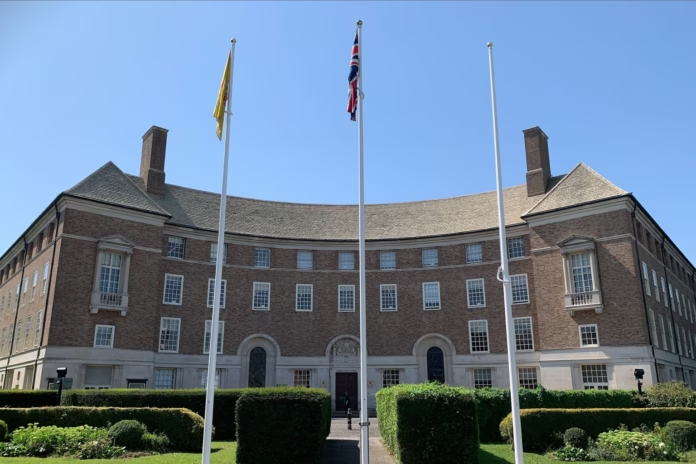A small gathering of treasury specialists met in York ahead of the main LATIF North conference to discuss the setting of, changes to, and external influences on treasury management strategies.
The Treasury Management Roundtable was chaired by Kelly Watson, head of local government relationships at CCLA, with the full list of attendees listed below.

Before the general discussion, Sidhant Mehta, portfolio manager (cash) at CCLA, offered an overview of the broader economic picture in the UK and how the latest trends and forecasts might impact treasurers’ plans.
After recapping the events of the past five years, Mehta said 2024 would be a story of continuing disinflation, while we are also likely to see “positive, real wage growth”.
From a GDP perspective, while the UK found itself in a technical recession last year, Mehta said CCLA’s view was that the country “won’t go into a deeper recession but instead go into stagnation or very mild growth”.
The UK and US elections taking place this year could also have an impact, as might the Middle East situation, with an oil crisis a possibility. Another consideration is that if wages stay sticky, growth could be dampened.
“There are many themes playing out,” Mehta said, “and we are currently at the transitionary stage before the ‘normalisation’ stage.”

Wages and recruitment
Tina Stankley, director for resources at North Norfolk District Council, noted concerns over wages, inflation and the national minimum wage, with local authorities “bearing the inflationary cost”. The differential between minimum wage and living wage is also getting “further up the pay scale”.
Mark Bottomley, senior technical accountant – capital and treasury at Trafford Council, said that with the wage gap coming down, there could be a “massive impact” and “massive costs” in the next five to ten years. “Long-term planning around that is one of our biggest challenges,” he added.
Mehta noted that there would be a readjustment, “but it is a matter of how long that will take”. He also explained that there are skills shortages in the UK labour force – with not enough accountants, for example. It is a question for government to raise those particular skills.
Some roundtable participants said their authorities were struggling to meet the pay gap between the private and public sector for skilled workers. One recounted that recruitment difficulties were such that a ‘golden hello’ was needed in a recent case. This comes with the risk of causing tensions with existing employees.
There are also stereotypes and perceptions that need to be broken down, with Stankley noting that working in the public sector is sometimes seen as “drinking tea and eating biscuits” compared to the private sector, with the hard work needed at local authorities underestimated.



Khadija Saeed, head of corporate finance at Lancashire County Council, concurred with this assessment, joking that while there are indeed “great pensions”, these can only be obtained if “you’re ever able to retire”. She said the content of local authority work should be used to attract a certain type of person, with opportunities to help people and communities, and take charge of the “life and death issues” that are part of budgets.
The work is also challenging from the perspective of “having to be an expert on a range of areas”, Saeed added.
Treasury changes
After a break, the discussion moved on to how 2024/25 treasury management strategies have been put together and if there have been any significant changes this time around.
Rob Thurlow, chief accountant at Three Rivers District Council & Watford Borough Council, said environmental, social and governance (ESG) considerations had become more important, with authorities having to “strike a balance between not just paying lip service to it and actually trying to come up with something meaningful”.
Jessica Little, senior accountant (treasury management officer) at North Tyneside Council, said her authority had, with the help of its treasury advisors, been able to use a fund that is qualified as ESG and “have that in our strategy”. But she said there were not enough ESG funds available to make any wider use of them.


Bottomley said a big change at Trafford had been to make reports “more understandable to politicians and user-friendly” as a result of politicians becoming more aware of issues and wanting greater oversight.
“They want to know where our investments are, who we’re investing with, when they come back in and maybe some of them are investments that are a bit riskier and don’t necessarily meet with some of the requirements,” he said.
Stankley wondered if any of the roundtable participants were using green finance and bonds, with Bottomley noting that the “premium to using them makes a difference and is a barrier” to entry.
Mehta then asked about asset classes, and which were being used across treasury management strategies. Little said at North Tyneside, with a small portfolio, the authority only uses deposit funds, money market funds or the DMO – making it “very low-risk”.
Stankley added that most small districts and boroughs would typically only do “straightforward” investments, and that given the resources available they would often rely on treasury advisors.
“Advisors have a difficult role,” added Saeed, as “we ask them to critically view what we are doing”. She also noted that reputational damage had to be avoided at all costs. “You do have to have your wits about you because it can make headlines if you don’t do it quite right,” she said.


Bottomley reported that Trafford Council had “gone down the property investment route”, which can present risk in terms of being criticised by the local press or members. Whereas investments in housing and taking on shopping centres that might otherwise have closed have gone down well, some members are “not as keen” on retail area investments or lending to the nearby airport, despite obvious benefits.
“Politics does drive everything, and whatever we do, someone is going to have a moan about it,” he said. “We have to remember we’re doing the best we can, and doing it because we want to benefit local people and areas.”
Finally, the roundtable participants discussed the reputational risks around dealing with authorities that have issued s114 notices in the inter-authority lending market. Bottomley admitted that Trafford “won’t go anywhere near these authorities” because “members will give you a hammering”. Conversely, some authorities have refused to lend to Trafford because its property investments are seen as a risk.
Saeed said there was no benefit to anyone from having a “hysterical reaction”. “There are a lot of authorities who are just one accounting mistake away from an s114,” she noted. “The sector is doing itself down” by having lists of authorities not to deal with, Saeed added.
One participant noted their council “wouldn’t survive” if other authorities refused to deal with it in the inter-authority loans market. Lending is needed and the vast majority of authorities always pay back on time.


List of roundtable participants
Lisa Ainsworth, senior accountant – treasury management, Warrington Borough Council
Mark Bottomley, senior technical accountant – capital and treasury, Trafford Council
Tania Jackson, specialist treasury, North Lincolnshire Council
Jessica Little, senior accountant (treasury management officer), North Tyneside Council
Sidhant Mehta, fund manager (cash), CCLA
Kirsten Robertson, statutory reporting and treasury business partner, Scottish Borders Council
Khadija Saeed, head of corporate finance, Lancashire County Council
Sally Shaw, senior conference producer, Room151
Tina Stankley, director for resources, North Norfolk District Council
Rob Thurlow, chief accountant, Three Rivers District Council & Watford Borough Council
Kelly Watson, head of local government relationships, CCLA (chair)
Jason Holland, editor, Room151
—————
FREE bi-weekly newsletters
Subscribe to Room151 Newsletters
Follow us on LinkedIn
Follow us here
Monthly Online Treasury Briefing
Sign up here with a .gov.uk email address
Room151 Webinars
Visit the Room151 channel













